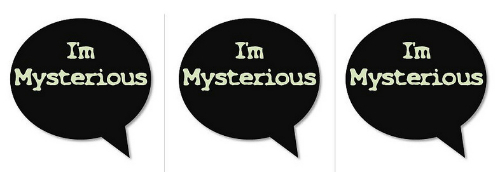Deductive Editing: Revising Like a Master Detective

The “Now What?” Months have focused on guiding you through editing and pursuing publication for your NaNo-novel during January and February. Though February’s ending soon, Susan Bell, editor and author of The Artful Edit , encourages you to continue revising, and to think of it as unraveling the mystery of your manuscript:
Dear NaNoWriMo Author,
Last night, I began this letter seven times in seven different ways, and by the fifth attempt, my mind’s voice began to mutter, “Forget it, I can’t write a pep talk as clever and charming as the others on the NaNoWriMo website.” In despair, I went to bed. This morning, I woke up with a new idea, and knew it was the one I’d use; suddenly, life felt possible.
Writing anything, it turns out, is demanding. Your first idea and expression are rarely your finished work. So to achieve what you want as a novelist, remember the following truth: to write is to edit.
It’s a snore of a word, edit. It brings to mind doing the dishes after the meal, whereas “writing” evokes daily walks in a temperate wood, where birds serenade, and the only lightning that strikes is the world-altering thought in your head. Ah, the romance of writing. Raise your hand if your writing life involves daily forays into a melodious forest, where your explosive thoughts transform into ingenious words? No hands?
Perhaps, instead, you sit for hours trying to translate chaotic ideas onto a blank page, only to realize later that what you wrote isn’t right. Do not be discouraged. Editing is not the clean-up, it’s the meal. Look forward to it, because when you edit, the discovery of problems is cause for celebration (where else in life is that so?). Rejoice each time you find a sentence or character or chapter that doesn’t work, because if you don’t find a flaw, you can’t fix it.
If you think of it as detective work, editing is fun. Editors are narrative sleuths, who systematically hunt down the problems in a manuscript. There are macro-problems that have to do with, among other things, structure, dramatic tension, and character motivation; and there are micro-problems, which involve the artisanal details of sentence-making, such as precision and transitions.
A novel is so complex, that analyzing it can be overwhelming. A totally haphazard approach isn’t recommended. I only began to enjoy editing when I made it more methodical. When you read your draft, try using a checklist of potential narrative problems. During one read-through, check for unwanted repetition—of words, sentence structures, ideas. During another read-through, look for dull spots, where tension sags. If you get lost in your verbal thicket and forget what you were looking for, go back to your list.
While editing, like writing, is idiosyncratic, some certainties exist: unnecessary words clutter prose and obscure meaning, so prune them out; writing is musical, and relies on variation and rhythm, so don’t overuse the same syntax or sentence length.
To edit judiciously, you’ll need two things: concentration and stamina. These are easy to maintain if you swear off an excessive intake of alcohol, caffeine, sugar, and drugs. Didn’t I say editing was fun? Seriously, don’t mess with your clarity; it’s your ticket to a beautiful final draft. Clarity depends on its host’s good health. Get a good night’s sleep, stretch periodically, drink water. Writing can tolerate mood shifts and mystical visions. Editing cannot. If writers are shamans, editors are athletes.
Now that you’ve understood the virtues of editing, don’t go at it prematurely or obsessively. If overwriting is bad, so is overediting. Wait until you’ve written a completed section of some sort before you reread and rewrite. It’s critical to edit your novel, but it’s just as critical to write freely first.
In admiration of your efforts,

Susan Bell is the author of The Artful Edit: On the Practice of Editing Yourself . She has written for Vogue, The London Sunday Telegraph, and National Public Radio. A former editor at Random House , she created a seminar on self-editing for the New School’s Graduate Writing Program in New York City, and continues to teach there.
Photo by Flickr user Enokson.
Chris Baty's Blog
- Chris Baty's profile
- 63 followers



